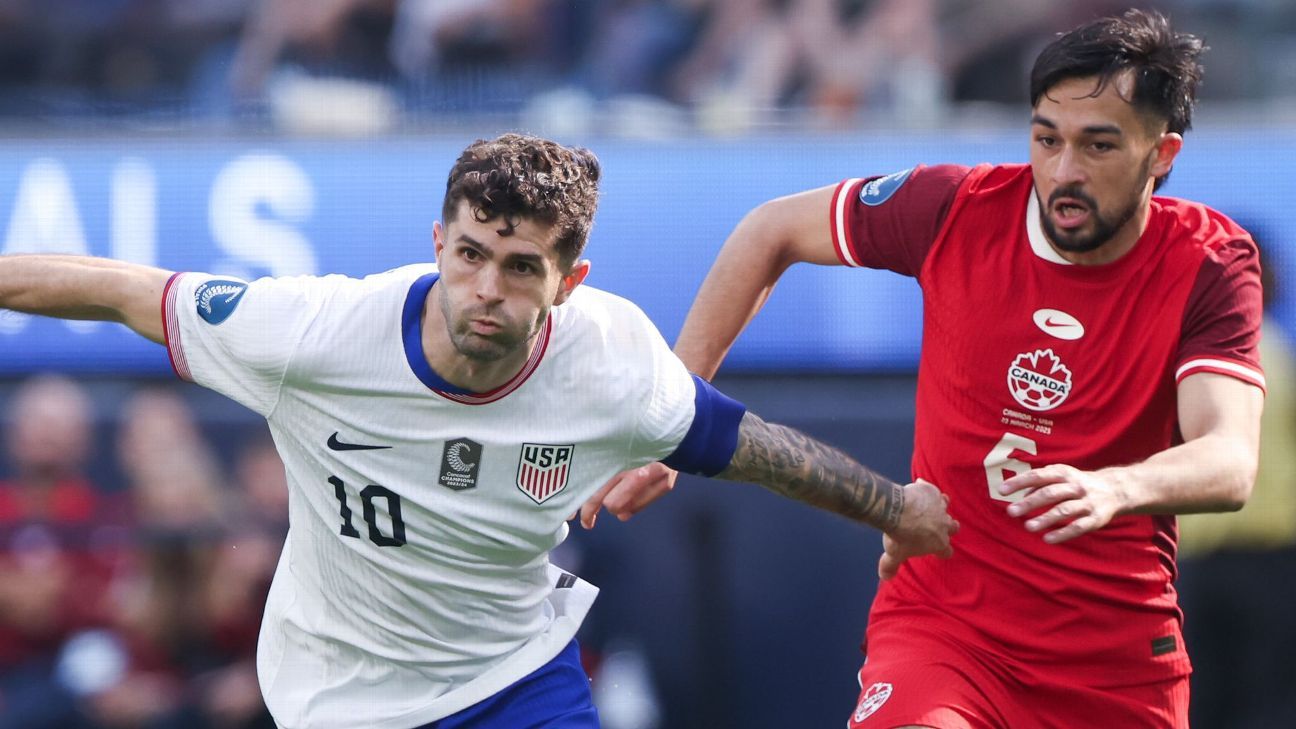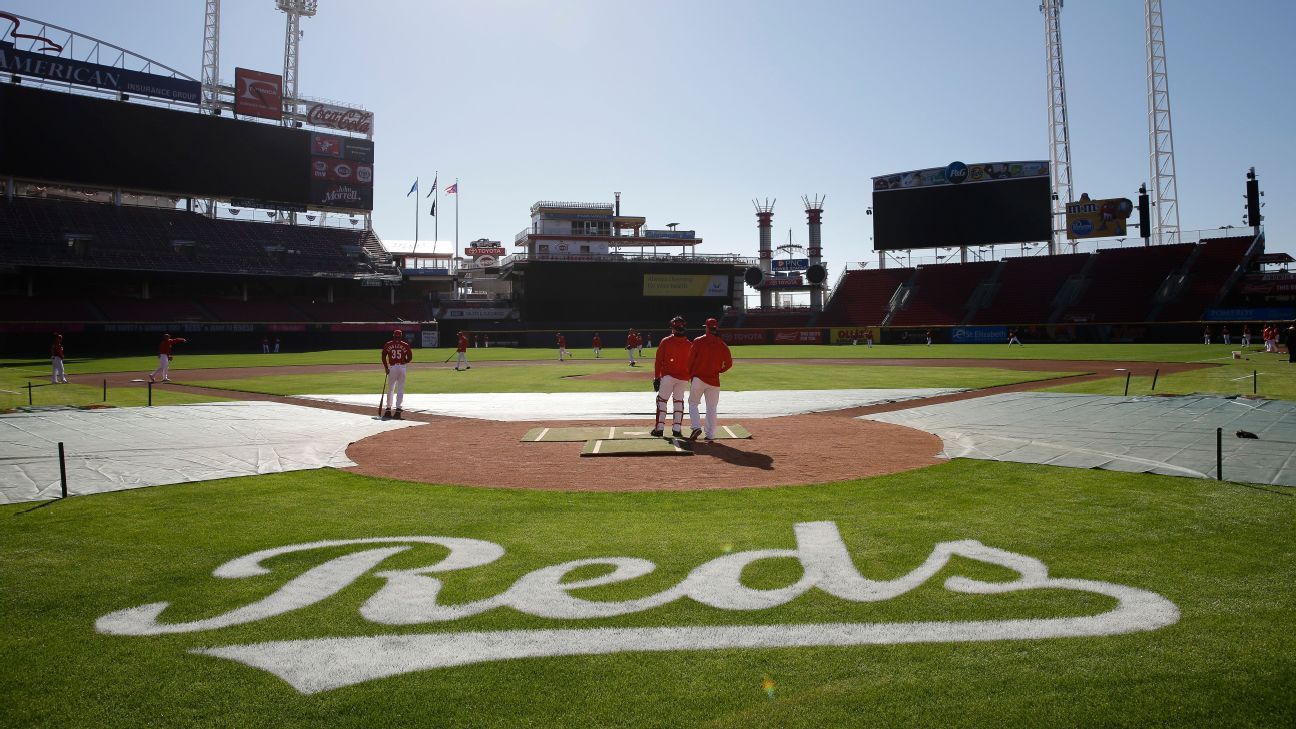
FARMINGDALE, N.Y. – It wasn’t long ago that Brooks Koepka was merely the lovable sidekick, the harmless challenger to Dustin Johnson’s throne. They played golf together. They lifted weights together. They boated and fished and vacationed together. But a viable threat to his supremacy? Oh, no. Unlikely.
And yet there was Johnson, in the scoring tent at Bethpage Black, glancing up at a TV monitor as Koepka closed in on another major, on the verge of eclipsing him even further.
In a 25-mph wind, on a brutish course that turned wayward drives into hack-outs, Johnson had played majestically for 15 holes, slicing into Koepka’s massive advantage and trailing by only one as he stood over his 194-yard approach into the 16th green.
But the next 45 minutes at the PGA Championship epitomized why the extravagantly talented Johnson has only a single major in 40 starts, while Koepka just bagged his fourth in his past eight attempts. The answer was right there on the scorecard he was double-checking with Sharpie marker, the consecutive bogeys late that nullified his remarkable round of 69 and left him second in a major – again.
After signing his card, Johnson meandered over to a TV tent for an on-camera interview. While waiting to go live, Johnson watched Koepka navigate the 18th hole. There was still a slight chance of a playoff, especially after Koepka’s drive sailed left, into the native area, but then he chopped back into play and wedged to 6 feet. It was over.
“We can start now,” Johnson said to the interviewer.
Entering the final round seven shots behind, Johnson knew that he needed a special round – and some help – to earn his first major title since the 2016 U.S. Open, the breakthrough that was supposed to open the floodgates. He raced off to a dream start, making the turn in 3 under to turn the PGA into a two-man race, but the wind switched when the final groups headed to the back nine and turned the closing stretch into a test of survival.
After looking unstoppable for three-and-a-half days, Koepka began sliding down the leaderboard. Errant drives on Nos. 11, 12 and 13. An airmailed tee shot on 14. Coupled with a Johnson birdie on 15, the seven-shot lead was now down to a single stroke, and for the first time, Koepka’s caddie, Ricky Elliott, noticed his normally unflappable boss looking anxious.
“I wasn’t nervous,” Koepka said. “I was just in shock.”
Meanwhile, the crowd, sensing a potentially historic collapse, shifted its allegiance to Johnson, loudly chanting, “DJ! DJ! DJ!” Just like that, Koepka was transported to another time, not so long ago, when Johnson was the main attraction and Koepka a mere bit player, when he’d venture over to Johnson’s place in South Florida and stare longingly at the U.S. Open trophy on his table.
“I think it actually helped,” Koepka said afterward. “It was at a perfect time, because I was just thinking, 'OK, I’ve got everybody against me. Let’s go.'”
Their rooting interest was understandable. There’s no one on the planet who plays as consistently excellent as Johnson. He’s a 20-time winner on Tour, with at least one title every season as a pro. He’s won against the best non-major fields, with 10 combined titles in World Golf Championships and playoff events. He’s been ranked inside the top 3 in strokes gained: total – the statistic that accounts for every aspect of a player’s game – in each of the past four seasons. But careers are inevitably defined by a player’s performance in the majors, and Johnson has a controversy-marred U.S. Open ... and a whole lot of heartache. That includes at last year’s U.S. Open at Shinnecock, when Johnson held the 36-hole lead and Koepka stared him down in the final round, head to head, and forever altered the dynamics of their brotherly relationship.
“He’s as competitive of a person as I’ve ever met,” said Koepka’s swing coach, Claude Harmon III, “and I think you need not necessarily rivalries, but people to push you and to inspire you. DJ has done a great job of that.”
And so it mattered little that Johnson didn’t have a realistic chance at the beginning of the day – trailing by one on 16, that was his chance to punch back. Finally.
With 194 yards for his approach into 16, into the fan, Johnson debated between 4- and 5-iron and opted for the shorter club. His low draw still flew 203 yards, settling into the rough behind the green. He pitched to 8 feet and hit what he thought was a perfect putt, only for it to slice in front of the cup. Bogey.
“I don’t know what else to do there,” he said.
On the raucous 17th, Johnson missed the green right and couldn’t get up and down. Another bogey. And on 18, he never gave himself a chance for a closing birdie, slicing his drive into the fairway bunker, hooking his approach wide of the green and needing to hole a 6-footer just to save par. It was the end of a demoralizing stretch that exposed Johnson’s crunch-time frailties.
“I would have liked to have a couple shots back,” he said, “but that’s how it goes.”
Behind Johnson, Koepka showed his mettle, pounding perfect drives on 15 and 16 to set up stress-free pars that increased his cushion. Even though he fired a final-round 74, even though he saw his lead evaporate from seven shots to just one, Koepka was the one posing afterward with the Wanamaker Trophy for the second consecutive year.
“It doesn’t really matter how,” Harmon said. “He’ll get as much out of this as if he would have won by 15.”
So what’s the separator between the two best players in the world? Why has Johnson been prone to major let downs, while Koepka has thrived on the biggest stages, prevailing on a funky, links-style course, and on dastardly greens, and against Tiger Woods, and on one of the most beastly setups imaginable?
“He has showed over the last two to three years how mentally tough he is,” Harmon said. “To do what he’s done, he’s uniquely talented. He’s got huge balls. Like ... big balls. You have to be able to do that to win these things.”
Throughout his star-crossed career, Johnson has proven to be remarkably resilient, bouncing back from repeated failures only to get his heart broken again. Afterward, he was informed that he’d captured not his second major, but the final leg of a more frustrating title – the Career Runner-Up Slam.
“Yayyyyyy,” he said, with mock enthusiasm. “I’m so excited.”
Searching for silver linings in another late letdown, a reporter asked Johnson whom he believed was the best player in the world.
“I’m pretty sure I’m still ranked No. 1,” Johnson replied, “so I’d pick myself.”
Only that wasn’t true. Not anymore.
With his fourth major in 23 months, Koepka leapfrogged Johnson and reclaimed the top spot.
The little brother is the bully, now and perhaps forever.















 Phone: (800) 737. 6040
Phone: (800) 737. 6040 Fax: (800) 825 5558
Fax: (800) 825 5558 Website:
Website:  Email:
Email: 






